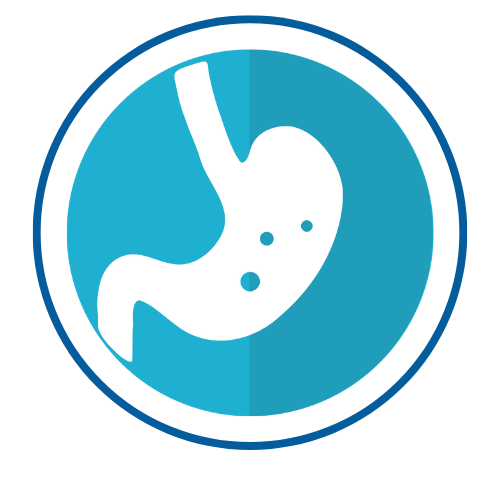If you’ve ever thought this, you’re not alone. It’s frustrating, isn’t it? That tight, uncomfortable feeling in your stomach that seems to linger no matter how much effort you put into eating “right.” You swap bread for gluten-free alternatives, skip dairy entirely, and maybe even start tracking your meals like an investigative journalist. And still, by the end of the day, there it is—the bloating. Mocking you. Refusing to budge.
It’s enough to make anyone want to throw in the towel and reach for the stretchy pants. But before you resign yourself to a life of discomfort, let’s pause. Because the truth is, bloating—that stubborn, maddening companion—is often more complicated than just “what you eat.”
Bloating: More Than Just Food
For most of us, it’s easy to point the finger at food. It’s intuitive, isn’t it? You eat something, and then your stomach swells up. But food is just one piece of the puzzle. Imagine bloating as the end result of a chain reaction. Food might be the trigger, but what if there’s a deeper issue at play?
Think of it like a messy closet. Sure, you can keep shutting the door and hoping the mess goes away, but until you tackle the underlying chaos, it’s only a matter of time before everything comes spilling out again. Bloating works the same way. You can avoid “bloating foods” all day, but if your digestive system isn’t functioning as it should, those efforts may feel futile.
So what’s really going on? Let’s dig in.

The Culprits Nobody Talks About
Bloating doesn’t happen in a vacuum. It’s often a sign that something’s out of balance. And while everyone’s body is unique, there are a few lesser-discussed reasons your bloating might be sticking around:
- Gut Microbiome Imbalance
Picture your gut as a bustling city. It’s home to trillions of microorganisms that keep things running smoothly—when they’re in balance, that is. But sometimes, the “bad” bacteria or yeast can take over, crowding out the good guys. This imbalance can lead to excessive gas production and, you guessed it, bloating. Probiotic-rich foods or supplements can help, but they’re not a magic bullet. Restoring balance takes time and a nuanced approach. - Stress (Yes, Really)
Ever noticed your stomach acting up before a big presentation or during a stressful week? That’s because your gut and brain are in constant communication. Stress can slow down digestion or cause it to go haywire, leading to—you guessed it again—bloating. Taking time to manage stress isn’t just good for your mind; it’s essential for your gut, too. - Food Intolerances vs. Sensitivities
It’s not just about dairy or gluten. Sometimes, even healthy foods like onions, garlic, or legumes can be problematic, especially for people with irritable bowel syndrome (IBS) or sensitivities to high-FODMAP foods. The challenge is identifying what’s causing the issue. Food diaries can be helpful, but working with a healthcare provider might save you a lot of guesswork. - Hormonal Changes
If you’ve noticed your bloating seems to align with your menstrual cycle, you’re not imagining it. Hormonal fluctuations can affect fluid retention and digestion, making bloating worse at certain times of the month. - Sluggish Digestion
Sometimes, bloating is simply the result of food hanging around in your digestive system for too long. When digestion slows down—whether due to poor hydration, lack of fiber, or even medications—gas can build up and cause that uncomfortable swelling.

What You Can Do Today
Feeling overwhelmed? That’s okay. The good news is, small changes can make a big difference over time. Here are a few steps you can start with:
- Chew, Chew, Chew
It sounds basic, but chewing your food thoroughly can take a surprising amount of pressure off your digestive system. Less work for your stomach means fewer opportunities for bloating to strike. - Stay Hydrated
Water keeps things moving through your digestive system. If you’re not drinking enough, digestion can slow down, leading to bloating. Sip water throughout the day, but try to avoid chugging it during meals—that can actually dilute stomach acid and make digestion less efficient. - Move Your Body
A brisk walk after meals can do wonders for digestion. Movement helps stimulate your gut and prevent gas from getting trapped. - Simplify Your Diet
When in doubt, go back to basics. Stick to whole, unprocessed foods and introduce new ingredients slowly. This can help you pinpoint any triggers without overwhelming your system. - Consider Digestive Enzymes
Sometimes your body needs a little extra help breaking down food. Digestive enzyme supplements can be a game-changer, especially for meals that include harder-to-digest foods like beans or dairy.
Rethinking the Relationship
Here’s the thing: bloating can feel like an enemy, but it’s really just your body’s way of communicating. It’s saying, “Hey, something’s not quite right here.” Instead of fighting it, what if you listened? What if you approached it with curiosity rather than frustration?
Take Maria, for example. She spent years battling bloating. She cut out dairy, avoided bread, and even tried fasting—but nothing seemed to work. Finally, she worked with a dietitian who helped her identify a gut microbiome imbalance. With some targeted probiotics and gradual dietary changes, Maria started seeing improvements. It wasn’t overnight, but it was progress. And along the way, she learned to trust her body again.
What’s Your Next Step?
The path to healing isn’t always linear. Some days, it might feel like you’re going backward instead of forward. But each small step you take—whether it’s trying a new strategy, seeking professional help, or simply being kinder to yourself—is part of the process.
If you’ve been stuck in a cycle of frustration, remember this: you’re not broken. Your body wants to heal, and it’s capable of more than you think. So take a deep breath. Maybe your answer is closer than you realize. And maybe, just maybe, this time, you’re on the right track.

